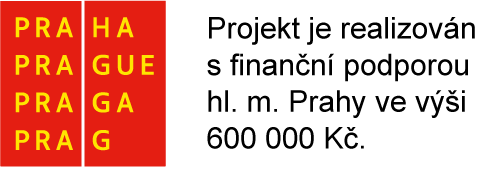Theme
JUBILEMUS!
European music of the 17th and 18th centuries underwent important and rapid development. Very distinct national styles gradually converged, although they retained the uniqueness of the specifics of each given region. The programme of the 25th anniversary edition of the Baroque Soirées will present individual national styles in the context of both sacred and secular musical works. Emphasis will be placed on repertoire of French provenance, which the Collegium Marianum ensemble traditionally brings to Prague audiences in a high-quality and original form.
The opening concert of the 25th anniversary edition of the Baroque Soirées will remind us of the timeless and deeply spiritual beauty of the arias from the sacred cantatas of Johann Sebastian Bach, which will be performed by one of their most accomplished interpreters – soprano Hana Blažíková. In his church cantatas, Bach masterfully worked with the musical setting of the text, using various compositional techniques, including so-called musical-rhetorical figures. Not only the key used, but also the melody’s progression and harmonic sequence reflected the meaning of the sung words. Johann Sebastian Bach, as a composer with a broad musical vision, was also inspired by various musical styles, including the Italian arioso and French elegance in ornamentation and rhythm. The knowledge and popularity of French music among German composers will also be evidenced in the programme by an overture composed by Johann Bernhard Bach, the second cousin of the great Johann Sebastian.
The curated evening of music and literature dedicated to Guillaume de Machaut is a celebration of medieval courtly lyricism performed by the Capella Mariana ensemble. The programme will present the work of one of the first composers whose life story was recorded, and who became famous in 14th-century Europe. From his youth, Machaut was in the service of John of Luxembourg, the king of Bohemia, and after the king’s death, he lived out his life as a canon in Reims. Machaut’s poems and music reflect a courtly society full of sophistication and elegance. His work represents one of the earliest documented musical bridges between France and the Czech lands.
A chamber concert dedicated to instrumental works by French composers of the first half of the 18th century will present the repertoire that was intended to provide entertainment to the French royal court in their chambers. During the reign of Louis XIV, music was heard at the French royal court on numerous occasions, from lavish celebrations in the palace or gardens of Versailles to equally grand ceremonies in the royal chapel and almost daily intimate musical productions in the royal chambers. With the accession to the throne of Louis XV, Queen Marie Leszczyńska took over the main patronage of the regular concerts in the court salons. The programme of the concert will transport the audience to imaginary concerts at court, featuring works by royal chamber musicians of these two generations, full of the elegance of dance and refined wit.
For Baroque composers, extra-musical contexts were also an important source of inspiration; in their music, we often encounter imitations of natural sounds or elements, attempts to evoke the atmosphere of a particular place or space, or even portraits of specific individuals. The opening concert of the autumn series of Baroque Soirées will present such “programmatic” pieces associated with mysterious nature or court festivities. Works by Henry Purcell, George Frideric Handel, Jean-Baptiste Lully, and Francesco Geminiani will be performed.
The chamber-style programme will transport us to the chambers of the Sun King, Louis XIV. The concert will feature the works of court musicians Jacques-Martin Hotteterre, Marin Marais, and Robert de Visée, a trio of famous virtuosos who pushed the boundaries of their instrumental performance towards greater virtuosity and solo expression. Their works constitute a crucial repertoire for modern players of early music instruments: the flauto traverso, viola da gamba and instruments of the lute family.
The programme of the Christmas concert will focus on little-known Christmas cantatas by Italian masters, complementing the dramaturgy of the series with an important component of the Baroque repertoire, which was an inspiration for the composers of the Transalpine region. The audience of the concert series will thus gain a comprehensive and at the same time detailed overview of the variety of national styles and their intermingling in Baroque Europe, including an excursion to early musical monuments associated with the Czech lands.
This broad dramaturgical scope, combined with impeccable artistic performances, is the hallmark of the Baroque Soirées concert series, which is now celebrating its 25th season.




